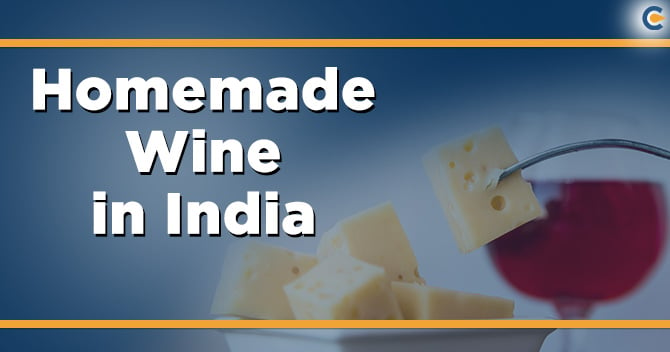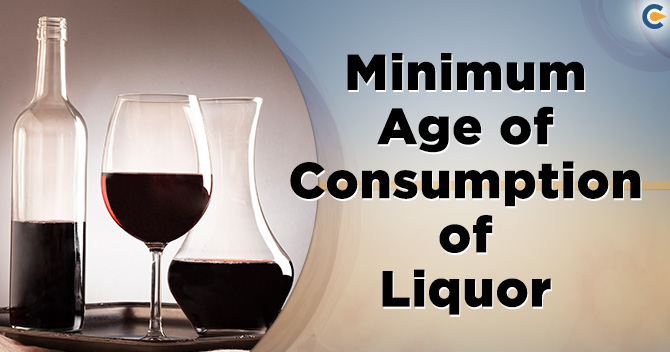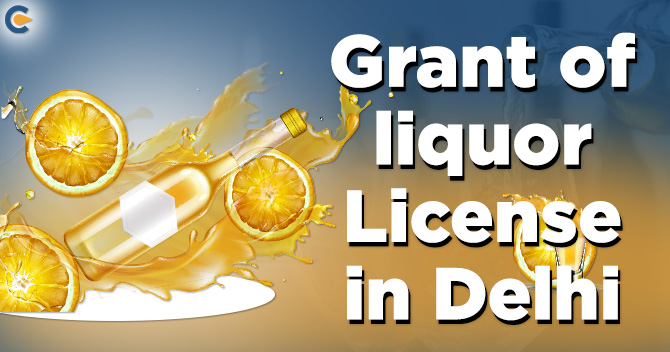There are various production laws for wine in India. India has not customarily a wine-drinking nation. The production & consumption of wine in India is almost negligible as compared to other countries because of restrictions in India. There are high prices of wine as compared to spirits like brandy and whiskey made in the country. In Maharashtra, there is a Champagne Indage’s plant, which signifies the production of wine on an organized scale in India. Commercial wine manufacturing has come into existence in the 1980s in India.
Is it really Legal to have Homemade Wine in India?
YES, it is absolutely legal to make wine or brew beer at home in India but only for personal use except in states where it is banned totally like in Bihar, Gujarat, Manipur, Lakshadweep, and Nagaland. There is no restriction imposed by state laws in India that one cannot make brew beer or make wine at home, but it is only for personal use and not for any commercial purpose.
One can make wine or brew beer but must consider some points:
- If a person is making wine or beer, then one must not sell it. Do not make any kind of profit.
- It must be strictly for personal use only.
- There is a limit to how much you make it. More than 50 liters cannot be considered for personal use.
- While making or storing the alcohol, one must be careful that wine or brew beer does not turn poisonous.
Types of Wines in India


Production of Wine in India
India has around 123,000 acres of vineyards, in which only 1% is utilized for wine production. There were 6 working wineries when India’s first wine production was set up in the 1980s. However, manufacturing is consequently expanded rapidly; it is was at approx 13.0 million liters in 2010. There are presently various wine production laws.
The following are wine companies which are presently manufacturing and producing wines in India-
- Chateau Indage Limited, Pune: Chateau is one of the largest wine producers in India, both by volume as well as valuation. It is the pioneer of a wine industry in India that is launched the sparkling wine Marquise de Pompadour in 1986, Riviera. It was the first to make ‘Bottled in India’ wines, which has been discontinued.
- Sula Vineyards, Nasik: This is the company that deals with all price and product segments of the wine industry in India. They first formed a market in grape varietals such as Chenin blanc, Riesling, Sauvignon blanc, and Zinfandel to India. According to the survey of 2013, they held that 70% of wine market share in India.
- Grover Vineyards Limited, Bangalore: This is a Company that was set up in 1989 near Bangalore after the promoters of a company tested soil and climatic conditions in other locations. They launched their first wine in 1992 since then their main motto is to deliver good quality wine to the users.
Read our article:Procedure for Obtaining Liquor License in India
Wines available in India


Wine laws on production in India
Excise Duty & Customs Duty
- It has been expanded, with 100% to the most extremely reasonable rate of 150%.
- India has rejected extra excise duty on imported wine and other products. So the customs duty has been waived off on wine in India.
- In 2007, instruction or education cess applicable to the imports of wine was rejected.
Local Taxes
- The Central Government has witnessed the most extreme state excise in different states, which is 25%.
- The rate of the import expense for imported wine is Rs.2 for every mass liter in Kerela. However, Maharashtra has expelled excise duty on wine.
- Haryana has decreased the excise duty for wine to Rs.20.50 liter from Rs.32.25 liter per proof liter. Not only this, but it has also decreased the export duty to half for the domestic business.
Goods & Services Tax
- Alcohol and alcoholic products must be taxed at 18% GST rate.
Licenses of Wine in India
Licensing procedures is differ from the state by state. Few states do not allow the sale and manufacture of liquor. Some prohibition on the sale of liquor beverages. The state-run restraining infrastructures which control the distribution of liquor. In general, individuals must have a Liquor license to deal with liquor beverages. In some other states, licenses are further described to take into consideration things like room service sales of liquor.
Brand & Label Registration as per wine production laws
Distributors and importers are mandatory to register themselves and, in some cases, label the brand with the state excise department for showcasing the label in the state. The state office charges a fixed registration expense, and registration should be renewed each year. In a few states, importers are too required to mention the MRP for the wine at the time of registration.
The state excise office gives guidelines and standards on specific labeling prerequisites for sale at the time of registration. These labeling guidelines may include:
- Available to be purchased in the state
- ‘Liquor Consumption is Injurious to Health’ in English
- (MRP) Maximum Retail Price
- The alcoholic beverage bottles have come with a warning on their labels, like “Be safe, don’t drink and drive.” In addition to this, the existing warning, “Alcohol is injurious to health.”
- Also, the alcoholic beverage needs to list all the ingredients used on their label, in Devnagri or English.
- The product also requires testing in ‘approved labs’ prior to selling in the market.
- The domestic winery requires to comply with the following rules according to the FSSAI rules[1].
Transport Permits as per wine laws of production
According to wine laws of production, subsequent to order from a licensed purchaser and buyer gets permits. The licensed merchant or distributor applies for a transport license from the excise office. Therefore, Licenses are normally issued after payment of sales charge (VAT), state excise tax, and other pertinent taxes.
Conclusion
The Indian wine industry is constantly evolving over the past 10 years. Wine in India is step by step turning into an urban Indian way of life. These import taxes in the nation reduces and also empowers the foreign exporters to exploit India’s huge consumer market. However, the wine market is biting by opening up as quantitative limitations are being lifted, import duties are being decresed, and domestic regulations are being untangled.
Read our article:Suspension and Revocation of Liquor License in India













